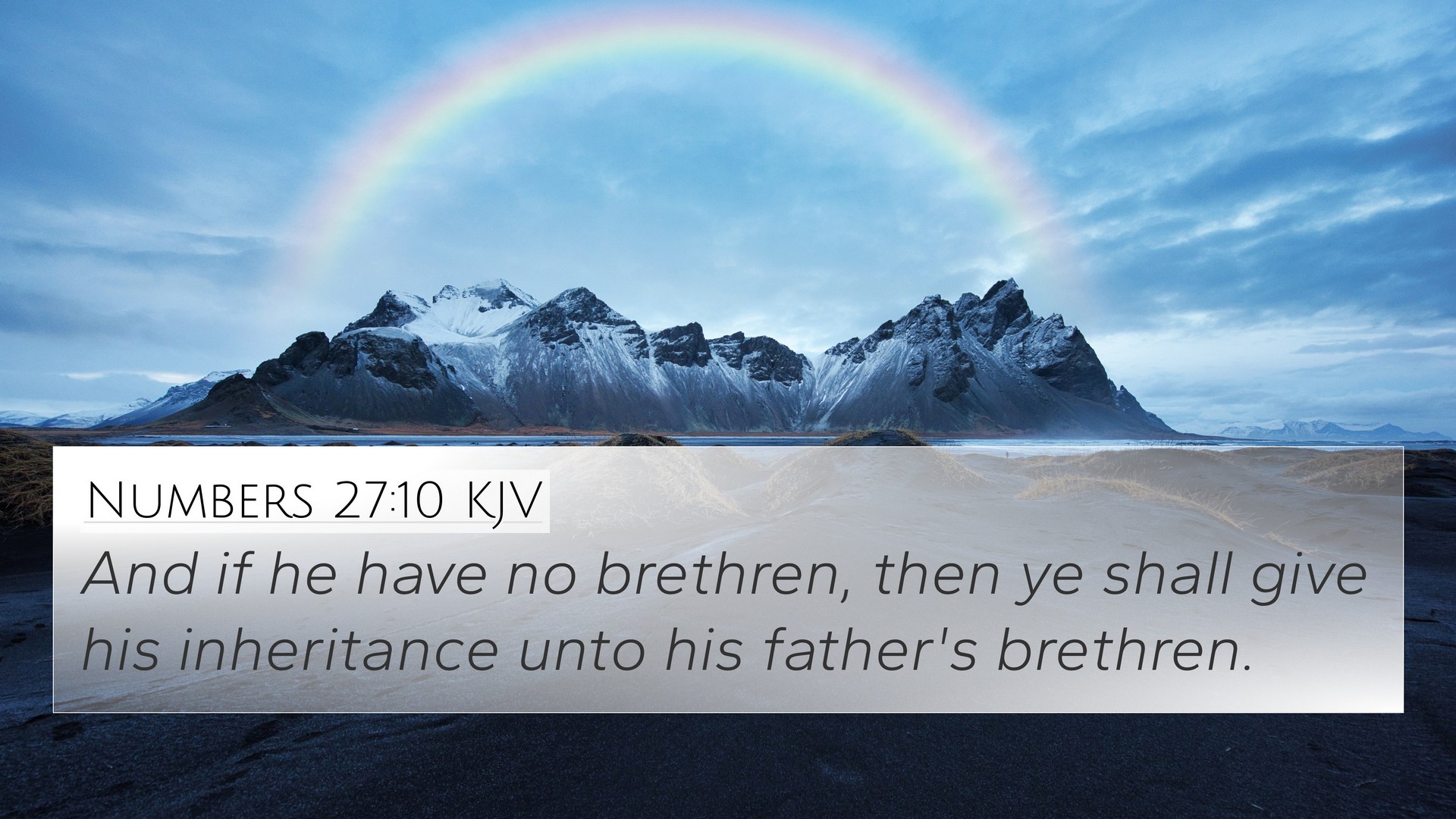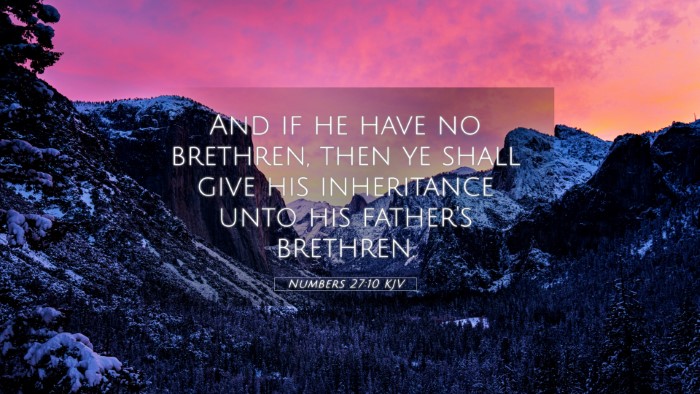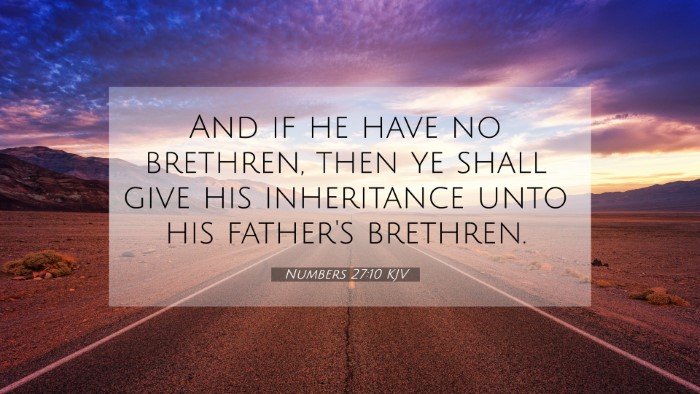Understanding Numbers 27:10
Bible Verse: Numbers 27:10 - "And if he have no sons, then ye shall inherit his inheritance unto his daughters."
Overview
The verse highlights the inheritance laws established within the Israelite community, particularly focusing on gender rights. Public domain commentaries shed light on the implications of this verse regarding social justice, equity, and God's commands for Israel.
Meaning and Context
This passage is situated in a broader narrative where God provides instructions to Moses about how to handle matters of inheritance among the people of Israel.
- Matthew Henry's Commentary:
- Henry emphasizes that this verse signifies the importance of securing the inheritance for future generations.
- He discusses how God’s laws aim at preserving family lines, where daughters may inherit if no sons are available.
- Albert Barnes' Notes:
- Barnes remarks on the progression of the law, indicating the shift towards recognizing the rights of daughters in inheritance matters.
- He notes that these provisions were revolutionary for the time, showing the compassionate nature of God’s law.
- Adam Clarke's Commentary:
- Clarke provides insight into the historical context, suggesting this legal framework was essential for promoting justice within the community.
- He elucidates how this verse connects with broader themes of equity, love, and familial responsibility in inheritance practices.
Cross-References and Thematic Connections
This verse resonates with several other passages in the Bible that explore themes of inheritance and justice. Here are some key cross-references:
- Deuteronomy 21:16-17: Discusses principles of inheritance among sons, affirming their rights.
- Joshua 17:3-6: Talks about the daughters of Zelophehad who claimed their rightful inheritance.
- Galatians 3:28: In Christ, there is no distinction between male and female, emphasizing equality in the inheritance of believers.
- Proverbs 13:22: A good man leaves an inheritance to his children's children, showing the generational impact of wise management.
- 1 Peter 1:4: Reference to an inheritance that is imperishable, connecting earthly inheritances to spiritual promises.
- Exodus 34:7: God’s nature as one who visits the iniquity of fathers upon the children also shapes community dynamics regarding justice.
- Luke 20:34-36: Jesus discusses the resurrection and how earthly inheritance pales in comparison to heavenly realities.
- Romans 8:17: Believers are heirs of God and co-heirs with Christ, tying New Testament themes of inheritance back to Old Testament law.
Connecting the Themes
Numbers 27:10 provides a rich ground for comparative Bible verse analysis, highlighting how the laws concerning inheritance evolved and were applied in various contexts throughout Scripture. Here are a few points of inter-Biblical dialogue:
- This verse illustrates a significant shift in legal standards and social norms for inheritance, influenced by God's directive.
- The inclusion of daughters in inheritance laws signifies early inklings of gender equality which echoes through passages like Galatians 3:28.
- The dynamics of family legacy and inheritance are further explored in Proverbs and the New Testament, indicating a consistent theme of responsibility in generational wealth transfer.
Conclusion
Understanding Numbers 27:10 within its scriptural context encourages believers to explore broader themes of justice, inheritance, and societal norms. The application of these laws during biblical times offers profound insights into current conversations about equity and family rights.
Studying Cross-References
To deepen comprehension of this verse and its context, one can utilize various tools for Bible cross-referencing, such as:
- Bible concordance to identify related verses.
- Bible cross-reference guides for thematic studies.
- Comprehensive Bible cross-reference materials that can aid in understanding the interconnectedness of Scripture.
Key Takeaways
The principle established in Numbers 27:10 serves not only as a legal framework for the Israelites but continues to resonate with modern interpretations of justice and equality in inheritance matters.


